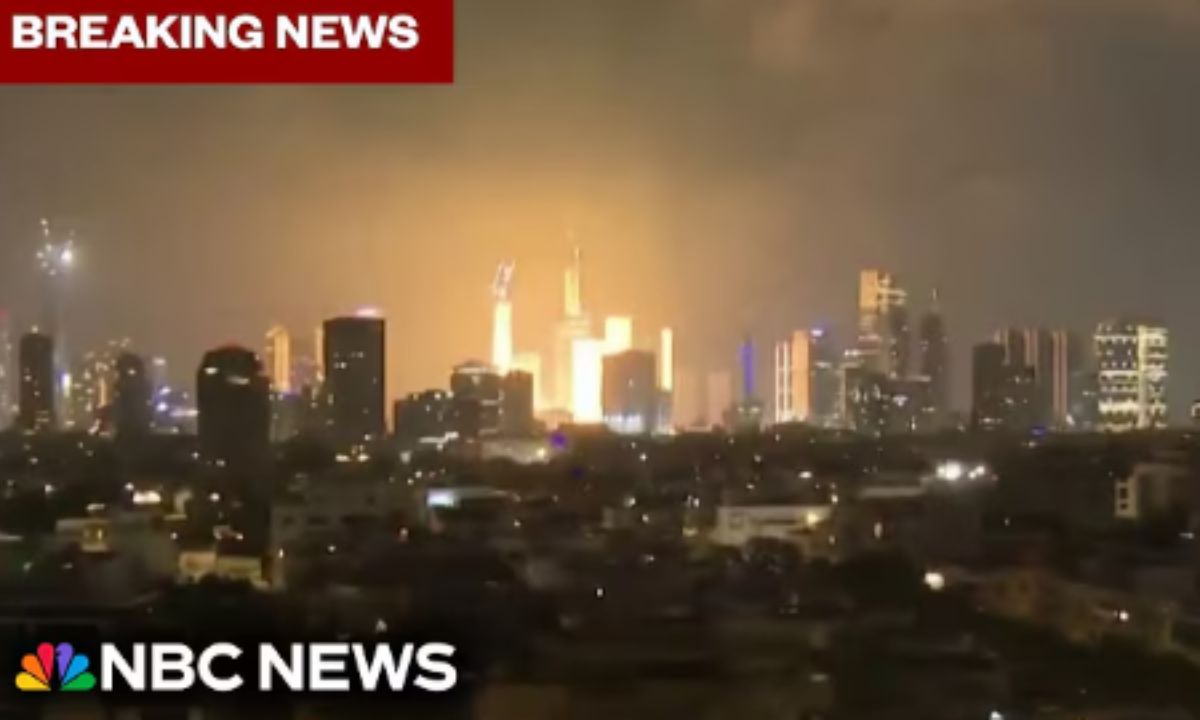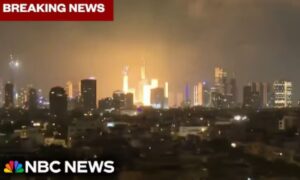In the early hours of Monday, Israel experienced one of the most intense missile attacks in recent history as Iran launched a large-scale barrage targeting multiple cities, including Tel Aviv, Haifa, and central Israel. The sudden and devastating strike shook the nation, leaving behind widespread destruction, civilian casualties, and urgent international concern.
A Night of Shock and Fire
Residents across major Israeli cities were jolted awake by air raid sirens and explosions. Dozens of surface-to-surface missiles, many equipped with advanced evasion technology, struck critical areas. While Israel’s Iron Dome defense system intercepted a significant number, some missiles penetrated, causing direct hits on residential neighborhoods, government buildings, and infrastructure.
In Tel Aviv, several buildings collapsed under the force of impact, and emergency crews worked through the night to rescue survivors. Haifa’s power plant suffered damage, temporarily plunging parts of the city into darkness. According to official reports, at least 14 people were killed, and hundreds were injured, some critically. Hospitals declared emergencies, calling in extra staff to handle the sudden influx of patients.
Civilian Impact and Infrastructure Damage
The missile strikes left entire blocks in ruins. Streets were scattered with debris, burned vehicles, and shattered glass. In cities like Bat Yam and Netanya, families mourned the loss of loved ones, including children caught in the blast zones. Schools, markets, and places of worship reported structural damage, and many areas remained closed for safety inspections.
Public transportation was briefly suspended, and Israel’s national emergency services issued warnings urging people to stay indoors or head to bomb shelters. Citizens are now dealing with trauma, displacements, and significant property loss.
Israel’s Swift Retaliation
Israel responded quickly and decisively. Within hours, the Israeli Air Force launched targeted airstrikes on Iranian missile bases in western and central Iran. These operations aimed to dismantle launch pads, command centers, and supply routes used in the attack. Reports suggest key Iranian military assets were destroyed, with Iran acknowledging both military and civilian casualties.
Prime Minister Benjamin Netanyahu declared the response was only the beginning, warning Iran of “unimaginable consequences” if such attacks continue. Israel’s defense forces remain on high alert, preparing for potential follow-up strikes.
Global Reaction and Rising Tensions
The international community reacted with alarm. The United States condemned the Iranian strikes while urging restraint from both sides. European Union leaders called emergency meetings to discuss the growing crisis. Meanwhile, countries with citizens in Israel, including the UK and Germany, began evacuation efforts and advised travelers to avoid the region.
Oil prices surged, and financial markets showed signs of instability, reflecting the broader economic risks tied to this escalating conflict.
What Comes Next?
The missile barrage marks a dangerous escalation in the long-standing Israel-Iran tension. Unlike previous indirect confrontations via proxy forces, this attack was direct, deliberate, and destructive. As both countries gear up for what could become a prolonged confrontation, the world watches with concern.
For now, Israel is left to count the cost—rebuilding homes, healing the wounded, and bracing for what lies ahead. The hope remains that diplomatic efforts can still defuse the situation before it spirals into a full-scale regional war.

I’m Brook, a passionate blogger with 8 years of experience. I love writing about tech, fashion, business, and health. My goal is to share useful information and insights with you. Explore my website to discover exciting content on various topics!








